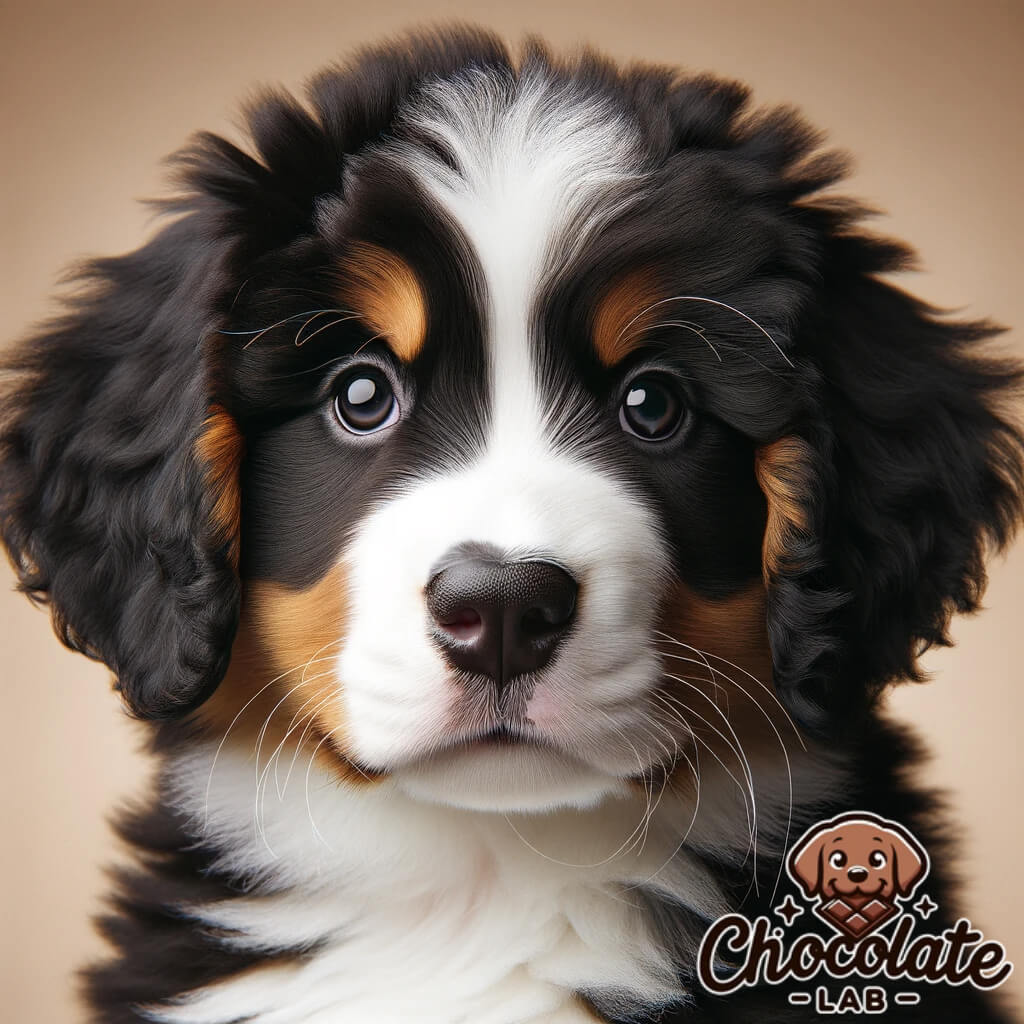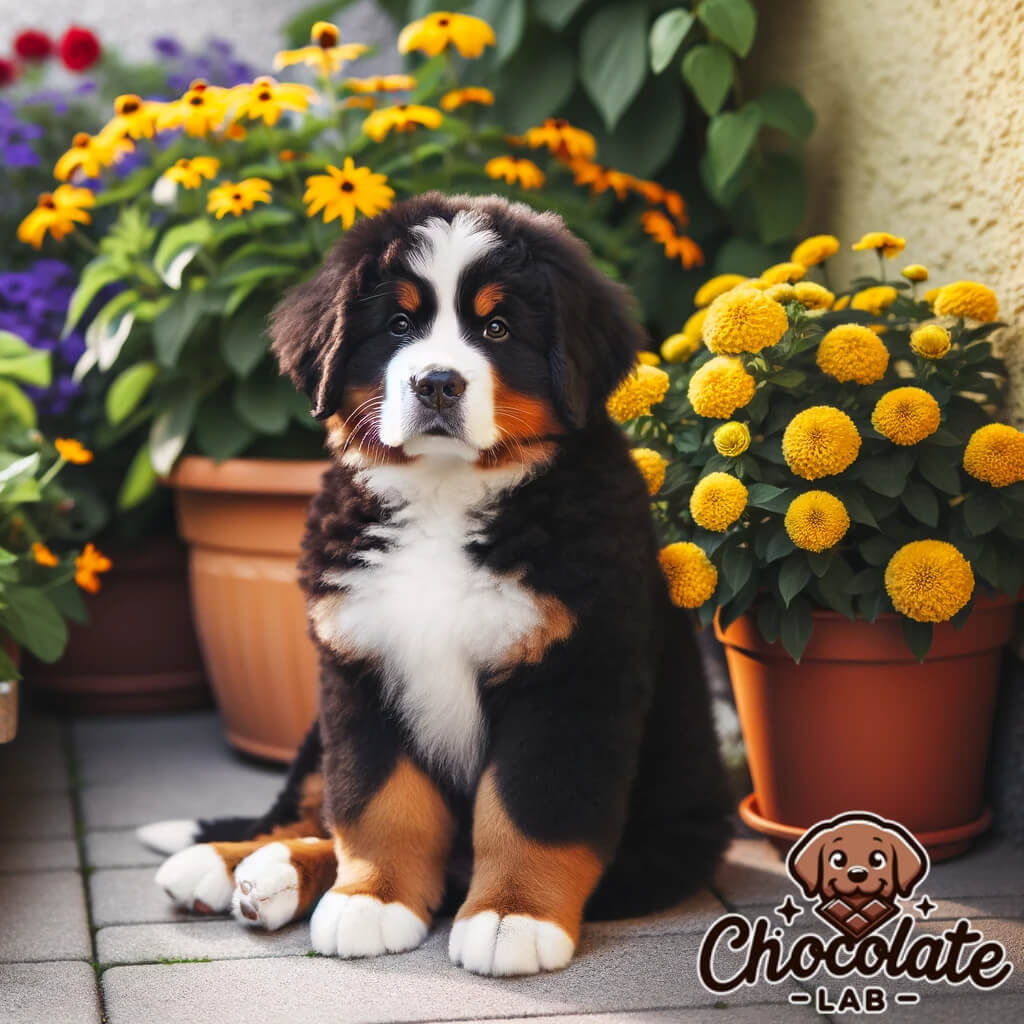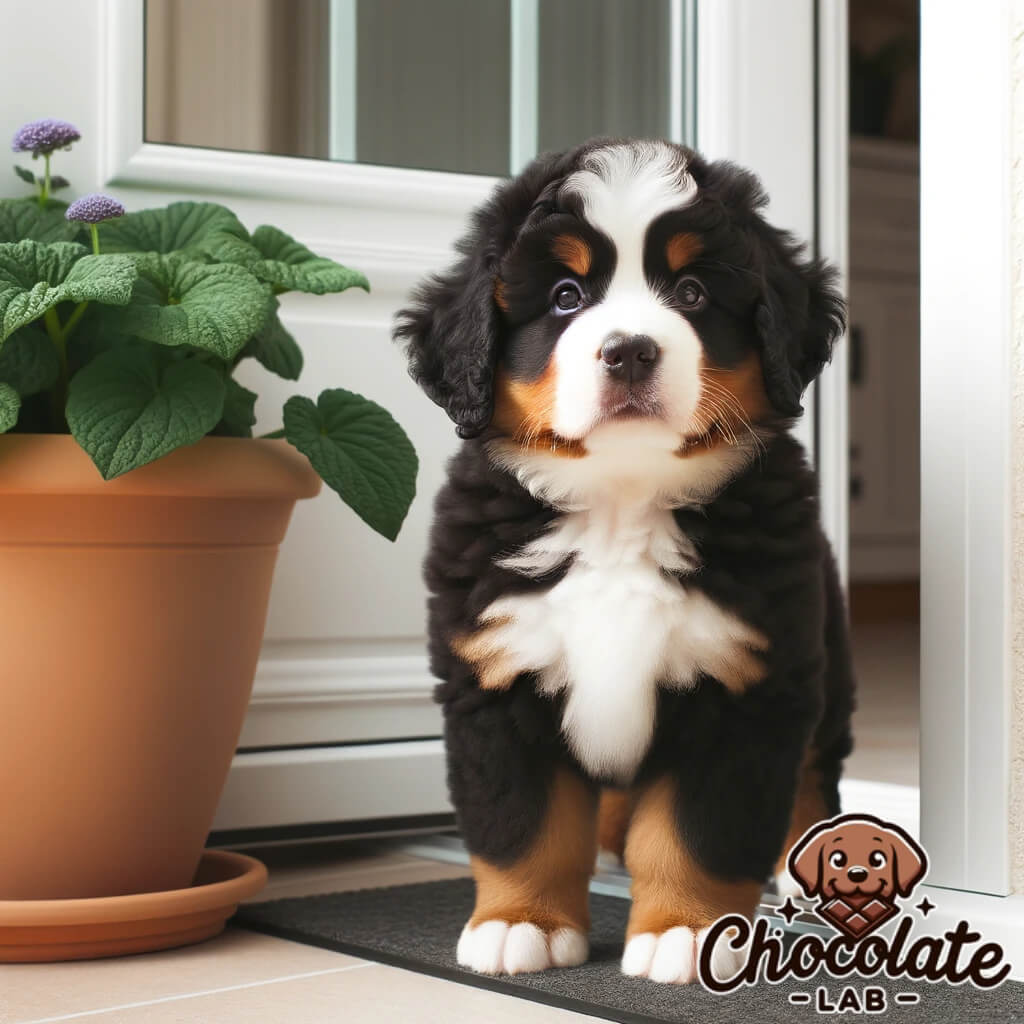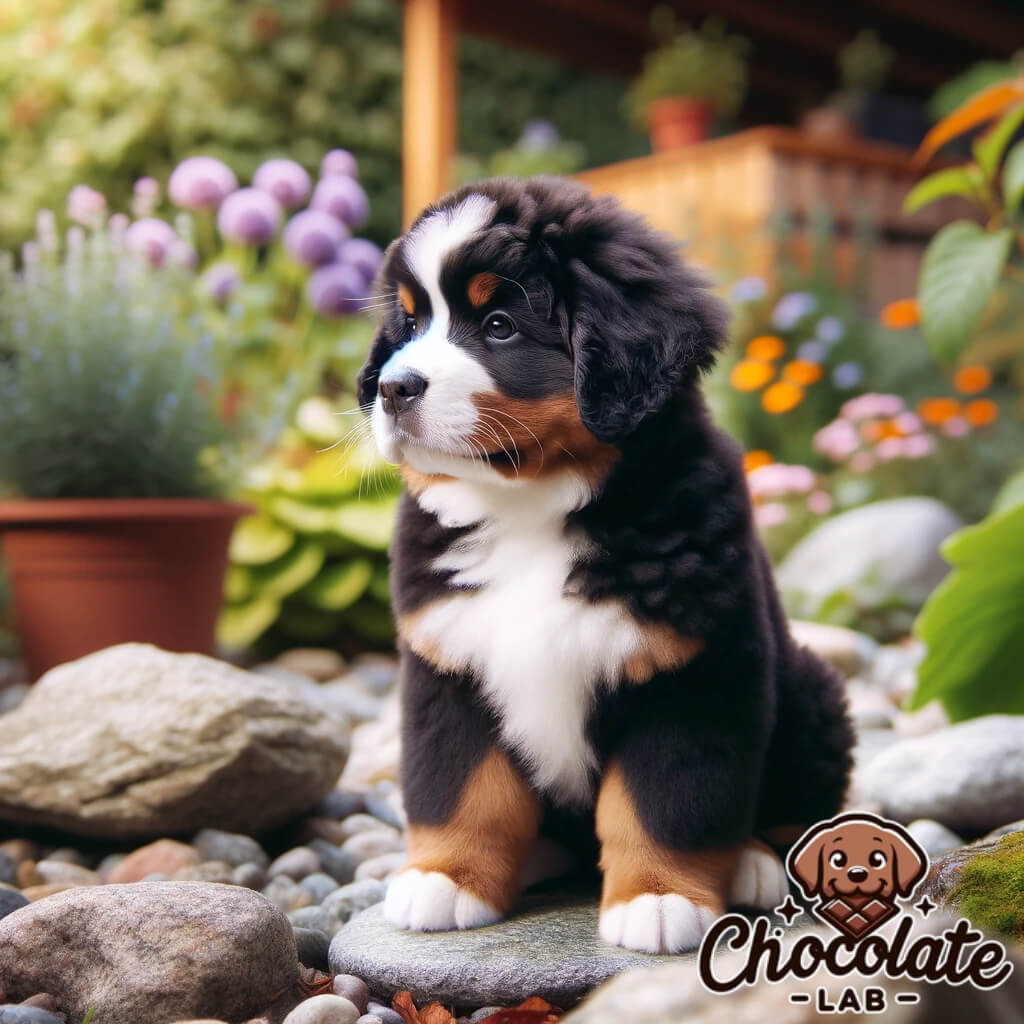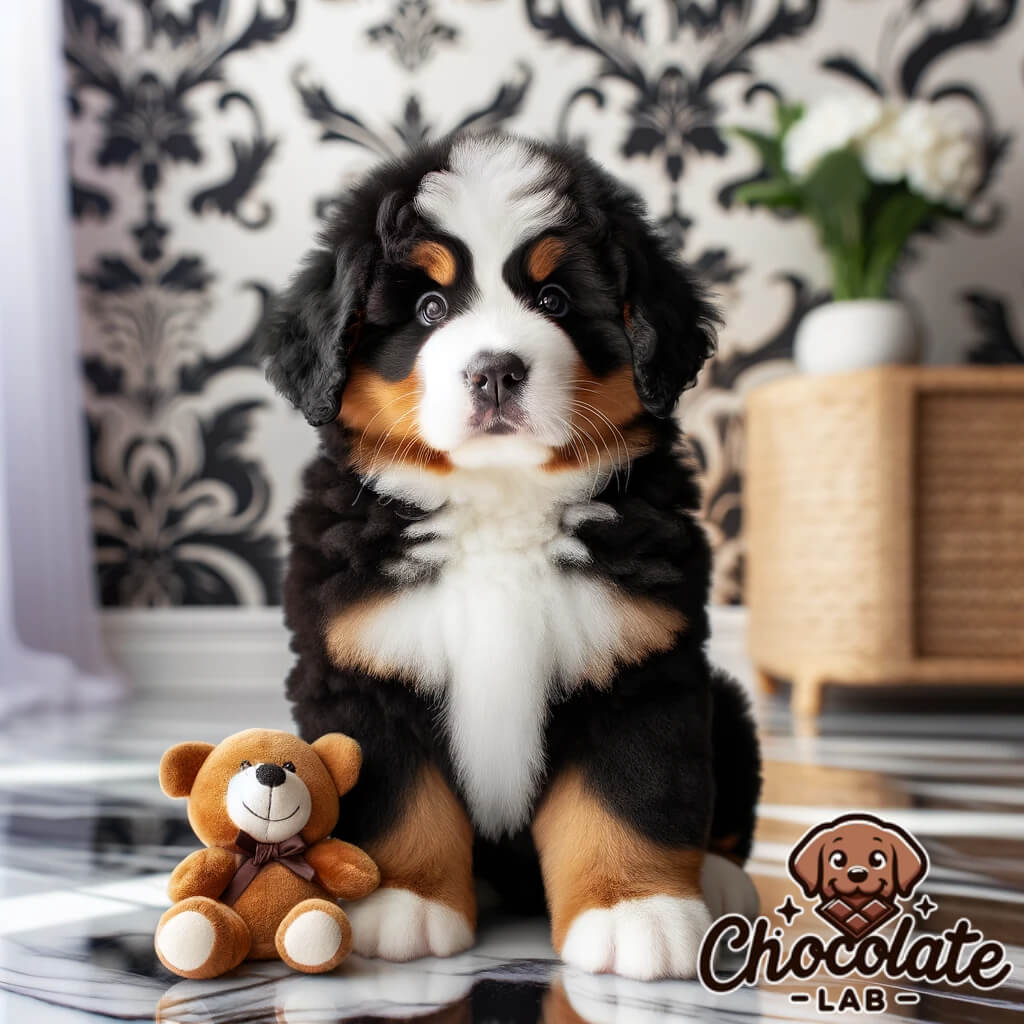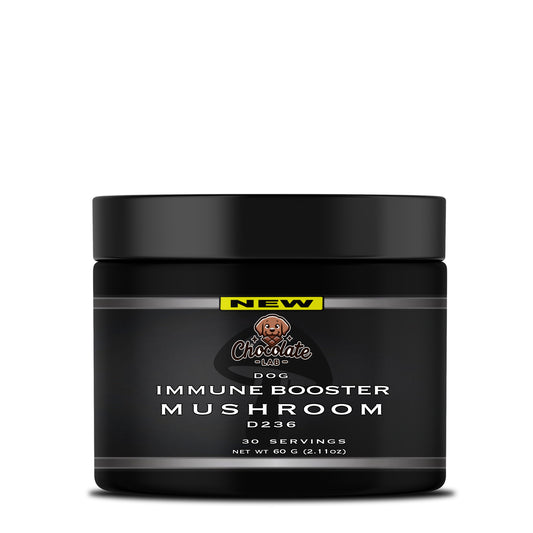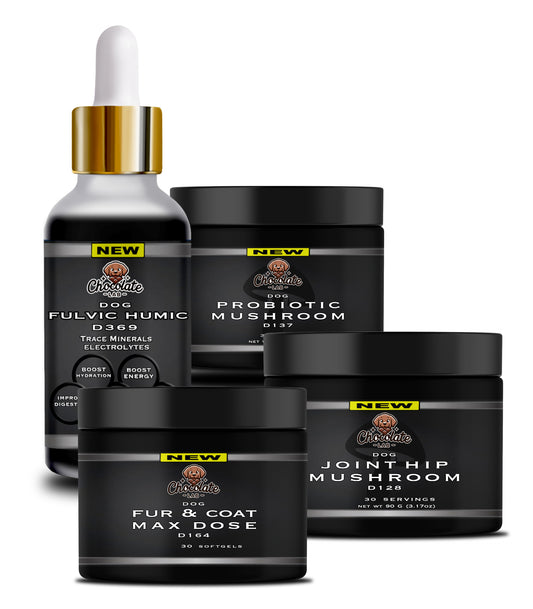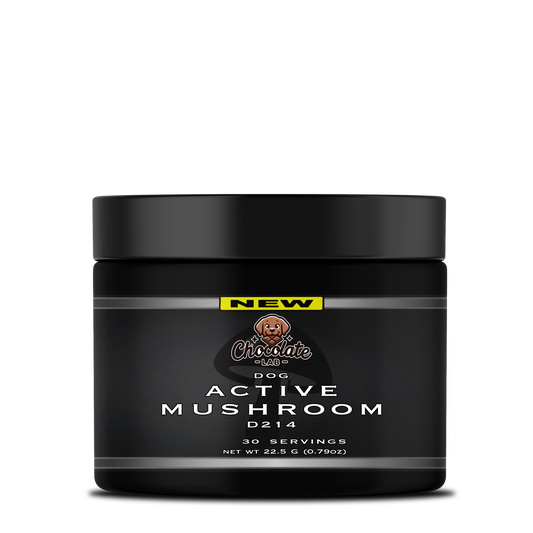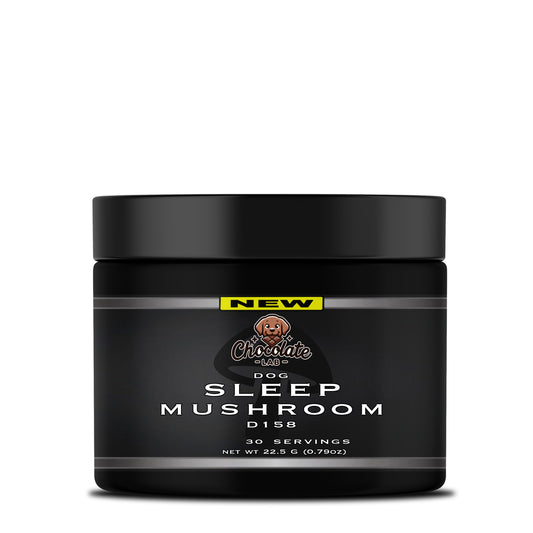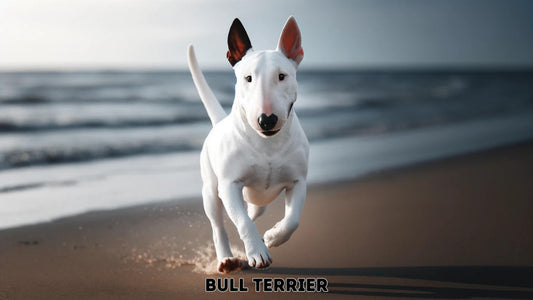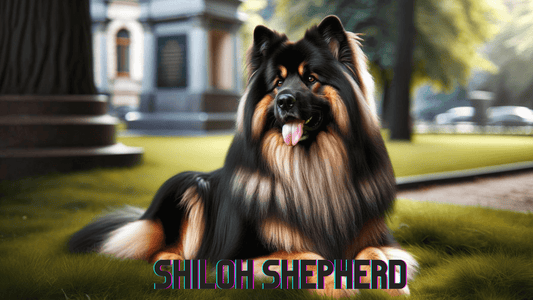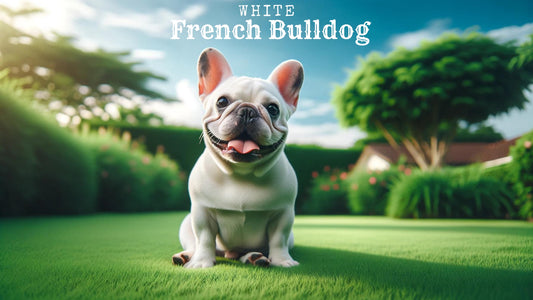Your Ultimate Guide to Mini Bernese Mountain Dogs for 2024! Ideal for both current and prospective owners, this guide delves into the world of the charming Mini Bernese Mountain Dog. Discover everything you need to know about this adorable and versatile breed, from its origins to care tips.
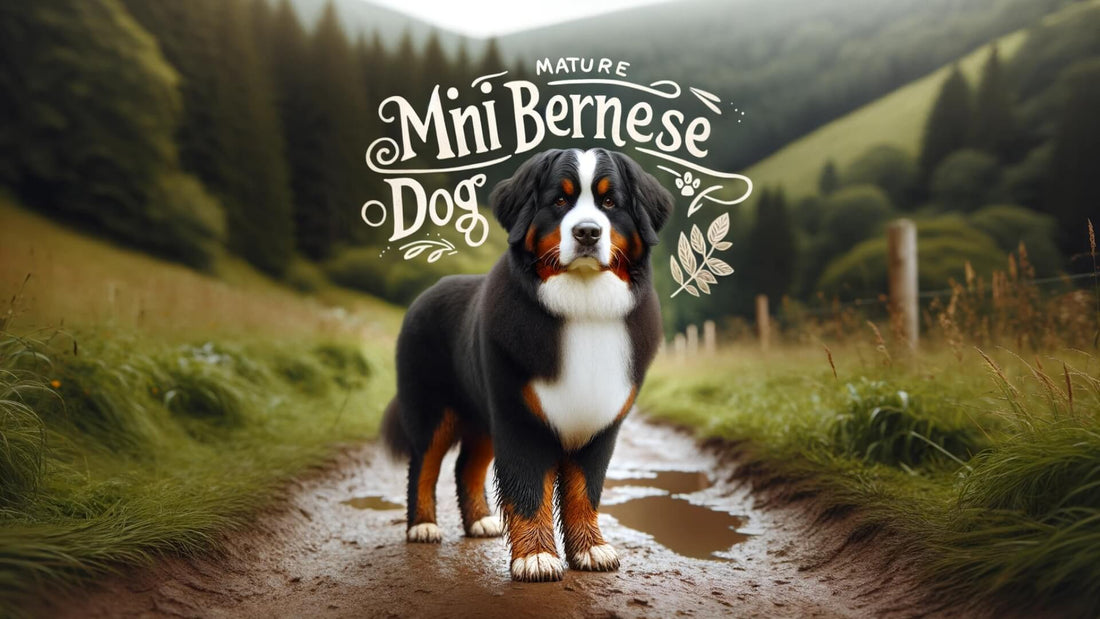
Mini Bernese Mountain Dog - Breed Information, Puppies & More (2024)
Mini Bernese Mountain Dog: A Comprehensive Guide
Published on 01/09/2024, 7:39 PM EST
Last Updated on 01/24/2024, 9:56 PM EST
Key Takeaways: Essential Guide to Mini Bernese Mountain Dogs

| Key Aspect | Takeaway |
|---|---|
| Size and Appearance | Compact and adorable, with a tri-color coat, standing 18-22 inches tall. |
| Temperament | Known for their friendly and gentle nature, great with families and children. |
| Exercise Needs | Requires moderate exercise; daily walks and playtime are essential. |
| Grooming Requirements | Regular grooming needed; brushing 2-3 times a week and monthly baths. |
| Health and Lifespan | Generally healthier with a lifespan of 12-15 years, but prone to certain genetic issues. |
| Training and Socialization | Highly intelligent and trainable, socialization is key for a well-adjusted temperament. |
| Living Environment | Adaptable to various living situations, suitable for apartments if exercised properly. |
| Cost of Ownership | Initial cost ranges from $1,000 to $2,500, with annual expenses around $1,000 to $2,300. |
| Ideal Owner | Perfect for those seeking a loyal and affectionate companion, suitable for first-time owners. |
| Unique Attributes | Smaller and more adaptable than the standard Bernese, offering the same charm in a smaller package. |
Table of Content
- Introduction: What is a Mini Bernese Mountain Dog?
- Origins of the Mini Bernese Mountain Dog Breed
- Physical Characteristics of Mini Bernese Mountain Dogs
- Mini Bernese Mountain Dog Temperament and Personality
- Training and Exercise Needs of Mini Bernese Mountain Dogs
- Health and Lifespan of Mini Bernese Mountain Dogs
- Grooming and Care of Mini Bernese Mountain Dogs
- Mini Bernese Mountain Dogs in Family and Social Settings
- Male vs. Female Mini Bernese Mountain Dogs
- Mini Bernese Mountain Dog Puppies for Sale
- Unique Facts and Differences of Mini Bernese Mountain Dogs
- Pros and Cons of Owning a Mini Bernese Mountain Dog
- How Much Does a Mini Bernese Mountain Dog Cost?
- Conclusion: The Joy of Having a Mini Bernese Mountain Dog
- FAQs: Top Questions About Mini Bernese Mountain Dogs Answered
Introduction: What is a Mini Bernese Mountain Dog?

The Mini Bernese Mountain Dog is a captivating breed that combines the majestic beauty of the Bernese Mountain Dog with a more manageable size. Originating from the larger Bernese, these mini versions are rapidly gaining popularity for their suitability in various living environments, including apartments. They retain the classic tri-color coat, showcasing a beautiful blend of black, white, and rust. Their friendly and affectionate nature makes them excellent companions, especially for families with children. These dogs adapt well to both city living and country settings, thanks to their versatile temperament. Known for being less prone to certain health issues than their larger counterparts, they are also becoming a practical choice for many. The Mini Bernese Mountain Dog stands out for its unique blend of charm, intelligence, and adaptability, making it a sought-after breed among dog enthusiasts.
- Overview: A smaller version of the Bernese Mountain Dog with a similar temperament.
- Unique Features: Compact size, friendly nature, ideal for family life.
- Rising Popularity: Increasingly favored for adaptability and size.
| Appearance | Size | Color Patterns |
|---|---|---|
| Tri-color coat | 18-22 inches | Black, white, rust |
Quick Tips:
- Space Needs: Suitable for smaller homes.
- Exercise: Daily walks and playtime are essential.
Origins of the Mini Bernese Mountain Dog Breed

The Mini Bernese Mountain Dog has a rich heritage, tracing back to the Swiss Alps where its ancestor, the Bernese Mountain Dog, was bred as a farm dog. The drive to create a smaller version of the Bernese was fueled by the desire for a dog with similar characteristics but more suited to various living spaces. Breeders meticulously worked to downsize the breed while maintaining its health, temperament, and distinctive appearance. This process involved careful selection and sometimes the introduction of other smaller breeds. The result is a dog that embodies the spirit and resilience of the Bernese Mountain Dog, but in a more compact and adaptable form. These mini versions have rapidly gained recognition and admiration for their ability to fit into diverse lifestyles, from city apartments to rural homes. Their popularity continues to grow, reflecting the successful blending of heritage with practicality.
- Historical Background: Rooted in the Swiss Alps, with a rich heritage.
- Miniaturization Purpose: Bred for companionship and suitability in various living conditions.
- Development Stages: Steady evolution into a recognized breed.
| Ancestor | Evolution Stage | Modern Mini Bernese |
|---|---|---|
| Bernese Mountain Dog | Miniaturization | Today's Breed |
Quick Tips:
- Heritage Traits: Look for the gentle nature and robust health of their ancestors.
Physical Characteristics of Mini Bernese Mountain Dogs

Physically, the Mini Bernese Mountain Dog is a stunning representation of its larger counterpart. They typically exhibit the distinctive tri-color coat, characterized by black, white, and rust hues. Their fur is dense and long, requiring regular grooming to maintain its luster. In terms of size, they range from 18 to 22 inches in height, making them significantly smaller than the standard Bernese. Despite their reduced size, they maintain a sturdy and robust build, reflecting their strong heritage. Their expressive eyes and gentle facial expressions endear them to all who meet them. One of the most notable features of this breed is the consistency in appearance across various individuals, showcasing the success of careful breeding practices. This breed's physical attributes make it not only a joy to behold but also practical for those seeking a large-dog personality in a smaller body.
- Coat: Thick, long, tri-colored.
- Size Variants: Ranging from toy to standard.
- Physical Features: Distinct markings, robust build.
| Feature | Mini Bernese Mountain Dog |
|---|---|
| Appearance | Compact, tri-colored |
| Size | Smaller than standard Bernese |
| Color Pattern | Similar to larger counterpart |
Quick Tips:
- Identifying Traits: Look for the signature tri-color coat and compact build.
Mini Bernese Mountain Dog Temperament and Personality

The temperament of the Mini Bernese Mountain Dog is one of its most endearing qualities. Known for their friendly and gentle disposition, these dogs are perfect for families, offering affection and loyalty in abundance. They exhibit a remarkable level of intelligence, which makes them highly trainable and eager to please. Their adaptability to different environments and situations is a testament to their well-rounded nature. Despite their smaller size, they maintain the protective instincts of the Bernese, making them good watchdogs. However, they are not overly aggressive and are known to be exceptionally good with children and other pets. These dogs thrive on human interaction and do best in environments where they are not left alone for extended periods. Their calm demeanor and willingness to adapt make them suitable for both active families and individuals seeking a loyal companion.
- Temperament: Friendly, adaptable, good-natured.
- Intelligence: Highly trainable and intelligent.
- Disposition: Loves being part of a family.
| Trait | Rating (out of 5) |
|---|---|
| Friendliness | 5 |
| Trainability | 4 |
| Adaptability | 4 |
Quick Tips:
- Nurturing Temperament: Regular socialization and positive reinforcement training.
Training and Exercise Needs of Mini Bernese Mountain Dogs

Training and exercise are essential for the well-being of Mini Bernese Mountain Dogs. They respond best to positive reinforcement and consistent training methods. Early socialization and obedience training help in developing a well-mannered and sociable dog. These dogs have a moderate energy level and require regular exercise to stay healthy and happy. Activities like walks, playtime, and light agility exercises are ideal for them. They also benefit from mental stimulation, such as puzzle toys and training games, which keep their minds active. Despite their smaller size, they enjoy outdoor adventures, making them great companions for active individuals. Regular exercise not only keeps them physically fit but also helps in preventing behavioral issues that can arise from boredom.
- Training Techniques: Positive reinforcement works best.
- Exercise Needs: Daily walks, playtime, and mental stimulation.
- Engagement Tips: Interactive games and training sessions.
| Day of the Week | Exercise Type | Duration | Additional Notes |
|---|---|---|---|
| Monday | Morning Walk | 30 minutes | A brisk walk to start the week. |
| Tuesday | Playtime & Training | 45 minutes | Interactive games and basic training. |
| Wednesday | Evening Jog or Walk | 30 minutes | A calming evening exercise. |
| Thursday | Agility Training | 30 minutes | Fun agility exercises in the yard or park. |
| Friday | Fetch & Play | 45 minutes | Play fetch for exercise and fun. |
| Saturday | Hiking or Long Walk | 1 hour | Explore new environments on a longer walk. |
| Sunday | Rest or Gentle Play | Flexible | A day of rest or gentle activity as needed. |
Quick Tips:
- Variety in Exercise: Mix different types of activities to keep your Mini Bernese Mountain Dog engaged and healthy.
- Training Integration: Incorporate training into playtime for mental stimulation.
- Adaptability: Adjust the duration and intensity of exercise based on your dog's age, health, and energy levels.
Quick Tips:
- Exercise Ideas: Fetch, agility training, and puzzle toys.
Health and Lifespan of Mini Bernese Mountain Dogs

Mini Bernese Mountain Dogs generally enjoy a longer lifespan than their larger counterparts, often living up to 12-15 years. They are predisposed to some genetic health issues, such as hip dysplasia and certain eye conditions. Regular veterinary check-ups and a healthy diet are crucial for their well-being. Owners should be vigilant for signs of common health issues and seek early intervention. Preventive care, including vaccinations and parasite control, plays a significant role in their overall health. Proper exercise and weight management are also essential in preventing health complications. Understanding and addressing their health needs ensures that these dogs lead a fulfilling and healthy life.
- Common Health Issues: Genetic predispositions to certain conditions.
- Lifespan Factors: Typically live longer than their larger counterparts.
- Preventive Care: Regular vet check-ups and a healthy diet.
| Health Concern | Prevention | Lifespan |
|---|---|---|
| Hip Dysplasia | Regular check-ups | 12-15 years |
Quick Tips:
- Routine Health Checks: Stay up-to-date with vaccinations and regular vet visits.
Grooming and Care of Mini Bernese Mountain Dogs

Grooming is a vital aspect of caring for a Mini Bernese Mountain Dog. Their thick, long coats require regular brushing to prevent matting and to keep the coat shiny and healthy. Bathing should be done as needed, but not too frequently to avoid stripping natural oils from their skin. Attention should also be given to their nails, ears, and teeth for overall health. A balanced diet is crucial for maintaining their coat and overall health. These dogs may have specific dietary needs depending on their activity level and health status. Regular check-ups with a veterinarian will ensure that their nutritional needs are met. Proper grooming and care not only keep the dog looking its best but also prevent health issues related to poor hygiene.
- Grooming Essentials: Regular brushing, occasional baths.
- Nutritional Needs: Balanced diet, tailored to activity level.
- General Care: Dental and nail care, ear cleaning.
| Grooming Task | Frequency | Tools Needed |
|---|---|---|
| Brushing | 2-3 times a week | Slicker brush, comb |
| Bathing | Once a month | Dog shampoo |
| Nail Trimming | Every 2-3 weeks | Nail clippers |
| Ear Cleaning | Once a week | Ear cleaner, cotton balls |
Quick Tips:
- Effective Grooming: Use the right tools for efficient grooming sessions.
Mini Bernese Mountain Dogs in Family and Social Settings

Mini Bernese Mountain Dogs are known for their exceptional compatibility with families. They typically exhibit a calm and gentle demeanor around children and are known to be patient and tolerant. Their friendly nature also extends to other pets, making them great companions in multi-pet households. Socialization from a young age is key to ensuring they are well-adjusted and confident in different settings. These dogs are known to form strong bonds with their family members, often displaying a loyal and protective nature. They thrive on interaction and love being involved in family activities. Understanding their need for companionship is essential to prevent anxiety and loneliness when left alone for extended periods. Their ability to adapt to different social situations makes them a versatile and beloved family pet.
- Family Compatibility: Excellent, very affectionate with family members.
- Behavior with Children and Pets: Gentle and patient.
- Socialization Needs: Early and consistent socialization is key.
| Setting | Compatibility Rating | Notes |
|---|---|---|
| Families with Children | 5/5 | Patient and gentle |
| Multi-Pet Households | 4/5 | Generally friendly towards other pets |
| Social Gatherings | 4/5 | Adaptable but may need initial guidance |
Quick Tips:
- Family Integration: Regular family interaction and inclusive activities.
Male vs. Female Mini Bernese Mountain Dogs

When considering a Mini Bernese Mountain Dog, potential owners often wonder about the differences between males and females. Generally, males tend to be slightly larger and more robust than females. In terms of temperament, both genders exhibit the breed's characteristic friendliness and affection, but individual personality can vary. Females may be more independent and reserved, while males are often more playful and outgoing. Health considerations are similar for both genders, though females will have specific needs related to reproductive health if not spayed. The choice between a male or female should be based on personal preference and the specific dynamics of the potential owner's household.
- Behavioral Differences: Varies by individual, but some general trends exist.
- Physical Differences: Males are typically larger.
- Health Considerations: Similar for both, with specific reproductive health considerations for females.
| Gender | Average Size | Temperament | Health Considerations |
|---|---|---|---|
| Male | 20-22 inches, 35-55 lbs | Playful, outgoing | Standard health checks |
| Female | 18-20 inches, 30-50 lbs | Independent, reserved | Reproductive health care |
Quick Tips:
- Choosing the Right Gender: Consider household dynamics and personal preference.
Mini Bernese Mountain Dog Puppies for Sale

When looking to purchase a Mini Bernese Mountain Dog puppy, it's crucial to find a reputable breeder. Ethical breeders prioritize the health and well-being of their dogs and can provide detailed health histories. They are usually involved in the breed community and often participate in dog shows or breed clubs. Beware of puppy mills and unethical breeders who may not follow best practices for health and socialization. Puppies should be well-socialized, vaccinated, and come with health guarantees. It's important to ask questions about the parents' health history and see where the puppies are raised. A good breeder will also be interested in the type of home you will provide, reflecting their commitment to the breed's well-being.
- Identifying Reputable Breeders: Look for transparency, health testing, and positive reviews.
- Red Flags: Avoid breeders who are unwilling to show living conditions or provide health clearances.
- Health Certifications: Essential for genetic health issues common in the breed.
| Checklist Item | Why It's Important | Notes |
|---|---|---|
| Health Clearances | Ensures genetic health | Hip, eye, and heart tests |
| Vaccination Records | Preventative health care | Up-to-date vaccinations |
| Breeder's Reputation | Reflects quality and ethics | Reviews, breed club memberships |
Quick Tips:
- Questions to Ask: Inquire about health, temperament, and socialization practices.
Unique Facts and Differences of Mini Bernese Mountain Dogs

Mini Bernese Mountain Dogs are not just smaller versions of the Bernese; they possess unique traits that set them apart. Their smaller size brings practical advantages, such as being more adaptable to different living situations and often having longer lifespans. They retain the tri-color coat and friendly disposition of the larger Bernese but require less space and exercise. These dogs are known for their intelligence and trainability, making them great for first-time dog owners. They also tend to be healthier with fewer instances of the genetic conditions that can affect larger Bernese Mountain Dogs.
- Unique Characteristics: Smaller size, adaptability, longer lifespan.
- Comparison with Standard Bernese: Similar in appearance and temperament but with practical advantages.
- Notable Abilities: High intelligence and trainability.
| Trait | Mini Bernese Mountain Dog | Standard Bernese Mountain Dog |
|---|---|---|
| Size | Compact, 18-22 inches | Large, 23-28 inches |
| Lifespan | 12-15 years | 7-10 years |
| Health | Generally healthier | Prone to certain genetic issues |
Quick Tips:
- Fun Facts: Share interesting tidbits about the breed's unique qualities.
Pros and Cons of Owning a Mini Bernese Mountain Dog

Owning a Mini Bernese Mountain Dog comes with both advantages and challenges. One of the major pros is their adaptability to different living environments, making them suitable for both apartments and houses. They are affectionate and loyal, providing great companionship. However, they do require regular grooming due to their thick coats, which can be a con for those with limited time. Their friendly nature makes them poor guard dogs, but excellent family pets. Understanding both the pros and cons is crucial for potential owners to ensure this breed fits their lifestyle and expectations.
- Benefits: Companionship, adaptability, and family-friendly nature.
- Challenges: Grooming needs, health considerations.
- Cost Implications: Budget for grooming, health care, and nutrition.
| Aspect | Pros | Cons |
|---|---|---|
| Adaptability | Good for various living spaces | Needs regular exercise |
| Temperament | Affectionate and loyal | Requires regular socialization |
| Health | Generally healthier than larger Bernese | Still prone to some genetic issues |
Quick Tips:
- Consideration Factors: Evaluate lifestyle compatibility and time commitment.
How Much Does a Mini Bernese Mountain Dog Cost?

The cost of owning a Mini Bernese Mountain Dog includes the initial purchase price and ongoing expenses. Prices for puppies vary, generally ranging from $1,000 to $2,500, depending on the breeder's reputation and the puppy's lineage. Ongoing costs include food, grooming, veterinary care, and toys. Additional expenses may arise for training, insurance, and emergency health care. Budgeting for these expenses is crucial for the long-term well-being of the dog.
- Initial Purchase Price: $1,000 to $2,500, varies by breeder.
- Regular Expenses: Food, grooming, vet care.
- Additional Costs: Training, insurance, emergencies.
| Expense Category | Annual Cost Range | Notes |
|---|---|---|
| Food | $300 - $600 | Quality diet tailored to size and age |
| Grooming | $200 - $400 | Regular brushing and professional grooming |
| Veterinary Care | $500 - $1,000 | Routine check-ups, vaccinations, emergencies |
| Miscellaneous | $100 - $300 | Toys, accessories, training |
Quick Tips:
- Budgeting: Plan for both initial and ongoing expenses.
Conclusion: The Joy of Having a Mini Bernese Mountain Dog

In conclusion, the Mini Bernese Mountain Dog offers a unique blend of charm, intelligence, and adaptability, making them an excellent choice for many families and individuals. They bring the joy and companionship of the larger Bernese Mountain Dog into a more manageable size. While they require commitment in terms of grooming and health care, the rewards of their companionship are immeasurable. These dogs fit seamlessly into various lifestyles, offering love, loyalty, and endless affection.
- Recap: Ideal blend of size, temperament, and adaptability.
- Final Considerations: Evaluate the impact on lifestyle and family dynamics.
| Key Point | Summary |
|---|---|
| Temperament | Friendly, adaptable, great with families |
| Care Needs | Regular grooming and health checks |
| Lifestyle Fit | Suitable for various living situations |
Quick Tips:
- Final Advice: Ensure you can commit to their care and companionship.
FAQs: Top Questions About Mini Bernese Mountain Dogs Answered

In this section, we address some of the most common questions about Mini Bernese Mountain Dogs. These FAQs cover a range of topics from care and behavior to health and ownership, providing concise and informative answers.
| FAQ | Answer |
|---|---|
| What is the lifespan of a Mini Bernese Mountain Dog? | Typically 12-15 years. |
| How much exercise do they need? | Daily walks and playtime; moderate exercise. |
| Are they good with children? | Yes, they are known for being gentle and patient. |
| What are common health issues? | Hip dysplasia, eye conditions. |
| How often do they need grooming? | Regular brushing 2-3 times a week, monthly baths. |
| Can they live in apartments? | Yes, if they receive enough exercise. |
| How trainable are they? | Highly trainable, intelligent, and eager to please. |
| What is their average size? | 18-22 inches in height. |
| Do they require a special diet? | Balanced diet suited to their size and age. |
| How are they with other pets? | Generally friendly and sociable. |
| Are they prone to separation anxiety? | They thrive on companionship and may experience anxiety if left alone frequently. |
| What is the initial cost of owning one? | $1,000 to $2,500, depending on the breeder. |
| How much does their upkeep cost annually? | Approximately $1,000 to $2,300. |
| Are they suitable for first-time dog owners? | Yes, due to their adaptable and trainable nature. |
| What makes them different from standard Bernese Mountain Dogs? | Smaller size, longer lifespan, and generally healthier. |


